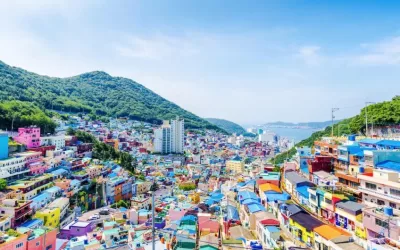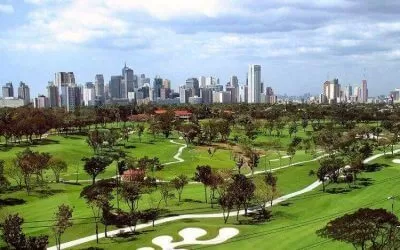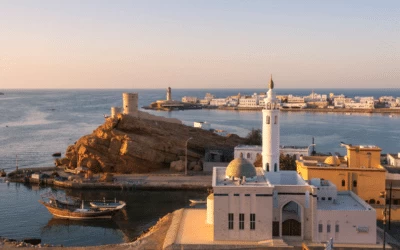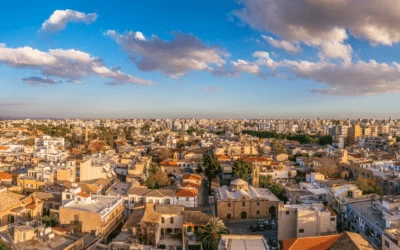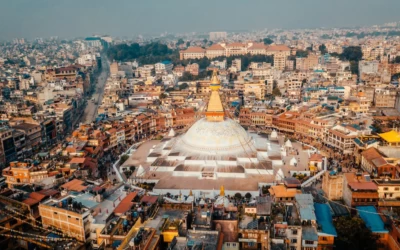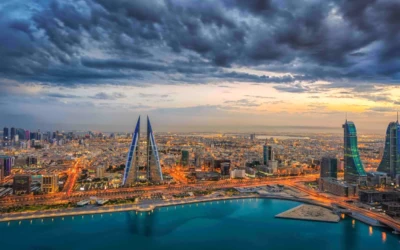If you’re looking to invest in Maldives real estate, there are great opportunities in some sectors… but you’ll first have to deal with the elephant in the room.
Making an investment in the Maldives as a foreigner isn’t always easy. You’d perhaps be better off in Southeast Asia if you want straightforward business procedures.
Likewise, rising sea levels pose a long-term threat to the nation’s existence by the end of this century. “Location, location, location” takes on a whole new meaning here.
Still, this is a nation with solid prospects for smart business owners – especially in the tourism and finance sectors.
Our guide about investing in the Maldives goes covers trading stocks, buying real estate in Malé, starting a business and more.
Before anything, we’ll first give a quick overview of the Maldives and it’s overall economic prospects though.
The Maldives: Islands of Opportunity
The Maldives is the smallest state in Asia and one of the smallest Muslim-majority countries in terms of land area. It’s also the flattest country in the world, being an average of 1.5 meters above sea level and with a maximum natural height of 2.4 meters.
Malé, which means “king’s island,” is the largest city and has played a key political and economic role in the country’s development.
Unfortunately, there has been political unrest and challenges caused by climate change and the potential for sea level rise due to the low altitude of the land.

As sea levels keep rising, any houses on these islands are in danger of being submerged. It’s estimated that the Maldives will become uninhabitable by 2100.
Islands in the Maldives
Although there are no big cities in the Maldives, several islands act as economic and administrative centers, particularly for the bustling vacation tourism industry that has been growing since the 1970s.
Malé is the capital and the largest city of the Maldives. A vast majority of government buildings, offices, and business activity in the country is found here.
If you’re making any sort of investment in the Maldives outside the tourism sector, it’s probably here in Mali. Probably the only reason you’d want to go elsewhere is if you’re building an island resort.
The city is also renowned for its mosques and stunning architecture. The Islamic Center has a striking gold dome, and a well-known fish market close to the waterfront sells the day’s catch.
Fuvahmulah island, which means “island of the Areca nut palms,” lies under the Gnaviyani Atoll. It’s among the important towns outside of the Malé capital zone.
As the top economic hub of the southern atolls, Fuvahmulah most notably has prospects in its agriculture sector. This is one of the few places in the Maldives where it’s possible to farm at any meaningful level.

Malé is the most populated city in the country, as it’s the center of government and foreign investment.
Another important town, Addu City, is situated in the southernmost atoll in the Maldives. Businesses and government offices make it a noteworthy part of the urban infrastructure of the Maldives.
Other cities and towns include Gnaviyani, Haa Dhaalu, Kulhudhuffushi, Gaafu Dhaalu, Thinadhoo, and Alif Dhaalu Atoll Eydhafushi.
How to Start a Company in the Maldives
Under the Foreign Investment Act, all foreigners in the Maldives can own up to 100% of a business in all sectors. Registering companies is also surprisingly straightforward here.
The corporate tax rate is a flat 15% above 500,000 MVR (about $32,500) and 0% below that. There are no restrictions on transferring earned profits internationally.
It’s a pretty low rate, but keep in mind that some countries in the world have zero percent income tax.
Several documents will be required for Maldives company registration, such as Articles of Association, Employee Identification Cards, and a letter of acceptance from both the managing director and secretary of the company.
As of now, the Maldives holds Double Taxation Treaties (DTTs) with only the United Arab Emirates and Bangladesh. However, this list could expand in the future as foreign interest in starting a company here grows.
Financial Markets and Stocks in the Maldives
On the third floor of the H. Gadhamoo Building in Malé lies the Maldives Stock Exchange (MSE). The MSE has only ten listed businesses at the moment, so trading options are limited to the following companies:
- Amana Takaful PLC (ATM)
- Bank of Maldives PLC (BML)
- Dhivehi Raajjeyge Gulhun PLC (DHR)
- Maldives Islamic Bank PLC (MIB)
- Maldives Tourism Development Corporation PLC (MTDC)
- Maldives Transport and Contracting Company PLC (MTCC)
- Ooredoo Maldives PLC (OMPL), State Trading Organization PLC (STO)
- Housing Development Finance Corporation PLC (HDFC)
- State Trading Organization PLC (STO).
Fortunately, it’s possible to open a bank account in the Maldives as a foreigner without having to make a personal visit.
Maldives’ Currency: The Maldivian Rufiyaa
The Maldivian Rufiyaa (MVR) is the official currency of the Maldives. As a foreign investor, understanding the key aspects of the Maldivian currency is essential for making informed decisions.
Interestingly, the name “rufiyaa” originates from the Sanskrit word “rypa,” which means “wrought silver.”
Rufiyaa paper bills (banknotes) are available in denominations of 5, 10, 20, 50, 100, 500, and 1,000 Rufiyaa.
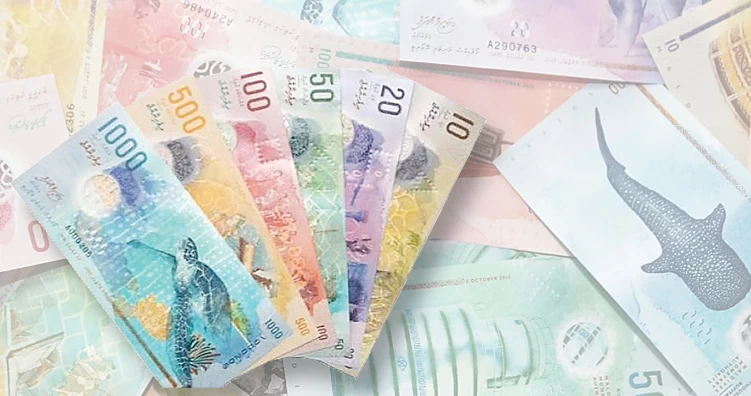
One USD is equal to approximately 15 MVR, and that basic exchange rate has stayed relatively stable over the last few years.
The ruffiyaa maintains a peg to the dollar. Not everybody is a huge fan of the US dollar, but we think it’s preferable to most of the region’s other exotic currencies.
You’re simply better off holding Maldivian rufffiyaa than Indonesian rupiah, for example, the latter which is proven to be far more unstable.
Industry in the Maldives
Fishing and tourism are two of the main industries of the Maldives. The archipelago has used the pole-and-line method of fishing since the beginning of time.
Tuna is the primary catch, which is eaten by locals on a daily basis and exported in large numbers. Seasons have a major impact on the daily catch.
Maldives is, of course, also a popular tourist destination, which serves as the backbone of the economy. A tourism boom started in the early 1970s, and the country quickly gained popularity as a vacation destination.
The Maldives real estate and construction sectors is growing steadily as a consequence of tourism, focusing on hotels and infrastructure.
While relatively small in scale, the manufacturing industry also plays an important role in the economy. The focus is on fish processing, boat building, and producing handicrafts and local products for domestic consumption and exporting.
The Maldives puts priority on renewable energy projects, including solar and wind power, to reduce its dependence on imported fossil fuels.
Cryptocurrency in the Maldives
While not banned in the country, the Maldives Monetary Authority (MMA) has cautioned residents against getting involved with unofficial currencies not counted as legal tender and issued by the Maldivian government.
Despite this, cryptocurrency has also helped the Maldives economy as it simplifies travel for travelers who prefer Bitcoin. Some hospitality providers like Soneva Fushi have started accepting crypto payments internationally.
There’s lots of space left for crypto investing in the Maldives to grow. Most of the world’s top global exchanges (Binance, etc.) cater to Maldivian citizens and residents too.
Buying Maldives Real Estate
The Maldives are unique among all the regions of the planet. It’s regarded as one of the best locations for recreation, particularly luxury.
However, despite the many attractive options for vacation villas overlooking beautiful waters and sandy beaches, you can’t own freehold land in the Maldives as a foreigner.
If you’re a non-citizen, you can only lease and type of property in the Maldives for a maximum term of 99 years.
There are only some exceptions for major foreign investors involved in commercial land. However, it requires a specific concession from the government which is granted very rarely in practice.

Breathtaking coral reefs and the marine ecosystem continue to attract thousands of tourists to visit each year. Keeping the country’s tourism industry alive.
Put bluntly: if you’re a foreigner and want to own freehold real estate, you shouldn’t buy land in the Maldives and may want to look elsewhere in the region.
For this reason, among others, many foreign real estate investors in the Maldives find that it’s better suited for vacations than for long-term habitation.
Nonetheless, if you’re able to buy real estate in the Maldives as a local or want a long-term lease, prices in Malé range between $5,000 to $10,000 per sqm.
Such numbers are far higher than real estate prices in the rest of the country due to most of the population being concentrated there.
The most desirable and expensive houses in Malé cost way more. If you’re willing to deal with leaseholds, one can expect a 5% increase in Maldives real estate values per year if the current trend continues.
With tourism in the area also on the rise, those in a position to rent on their destination getaways can expect good returns.
Approach real estate in the Maldives with one additional caveat in mind: The archipelago is incredibly flat, and much of it is vulnerable to rising sea levels, which go up about a few millimeters per year.
Time will tell if (current) beachfront properties will still be habitable several decades from now.
Private Equity and VC in the Maldives
The private equity and venture capital sectors in the Maldives are still developing. Limited market size, logistics constraints, and regulatory uncertainties are major limits that’ll have to eventually be overcome.
Private equity has only a small number of firms opportunities. Investment in the Maldives is primarily focused on tourism, real estate, and infrastructure development.
Meanwhile, venture capital is also in its nascent stages. Investments are available in emerging sectors with growth potential, such as renewable energy, technology, and hospitality.

Luxury resorts in the Maldives, which is the most common type of foreign investment here, are often owned by international hotel chains.
The Maldivian government has been encouraging foreign investment and promoting economic diversification, which could lead to a more robust private equity and venture capital ecosystem in time.
Interested parties can contact Capital Maldives Bank or the Chamber of Commerce and Industry to ask for recommendations on PE and VC.
Also, look into news reports from The Maldives Times for the latest opportunities. It’s a small sector, and if anything related to private equity is happening, word does get around publicly.
Should You Invest in the Maldives?
Over the past twenty years, the Maldives economy has grown steadily, largely due to booming tourism. The five years preceding the COVID-19 epidemic saw the economy expand at an average yearly rate of 6.4%, in fact.
Although the pandemic slowed economic development due to a decline in global tourism, signs of recovery are already popping up and indicating a return to previous levels.
Real estate companies like Hilton, Four Seasons, One & Only, Club Med, and other brands have made investments in well-known resorts in the Maldives.
Meanwhile, new government policies present appealing prospects for foreign investors in its effort to develop a robust and stable economy.
Besides the inability to own freehold real estate in the Maldives as a foreigner, the local business scene generally welcomes foreign investors.
Once you really think about it, every type of property in the Maldives is on a lease from the Indian ocean. Any distinction between leasehold and freehold ownership is perhaps meaningless in this case.
The fact that the Maldives might vanish by the end of the decade is troublesome. It won’t happen all at once – some islands will survive longer, while others will inevitably sink into the ocean.
You’ll want to check the specific island you’re doing business on very carefully. It could be the difference between your home in the Maldives drowning or not.
Either way, the Maldives has remained one of the world’s top luxury vacation spots. It will continue to hold that position for the foreseeable future.


